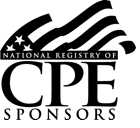Your go-to guide to S corporations
After completing this course, the learner should be able to:
Define an S corporation and the principal difference between an S corporation, a C corporation, and LLCs.
Identify the requirements to qualify as an S corporation—e.g., shareholder limits, capitalization, and disproportionate distributions.
Define the requirements to properly make the election to become an S corporation—e.g., calendar year elections, fiscal year corporations, and late elections and consents.
Identify special issues that need to be taken into consideration during the qualification process—e.g., trust as shareholders, tax-exempt shareholders, and state tax issues.

Instructor bio
Stan earned his bachelor’s degree in Business Administration from California State University, Northridge in 1980. He now runs a two-office tax, accounting and consulting practice in Oakland and San Francisco, California. The practice focuses on high net worth individuals and small businesses, providing quality, personalized financial and tax guidance. Stan has taught continuing education courses to practitioners throughout the country on a regular basis for over 10 years. Stan has been a regular guest on a local radio talk show discussing taxes and has been quoted several times in local papers. He previously taught accounting courses in junior colleges in Southern California.
A Becker Professional Education is registered with the National Association of State Boards of Accountancy (NASBA) as a sponsor of continuing professional education on the National Registry of CPE Sponsors. State boards of accountancy have final authority on the acceptance of individual courses for CPE credit. Complaints regarding registered sponsors may be submitted to the National Registry of CPE Sponsors through its website: www.nasbaregistry.org
Becker Professional Education Sponsor I.D. Numbers NASBA: 107294, New York: 002087, New Jersey: 20CE00226700, Texas: 009580, Ohio: CPE.186, Illinois 158.002405, Pennsylvania: PX177823

